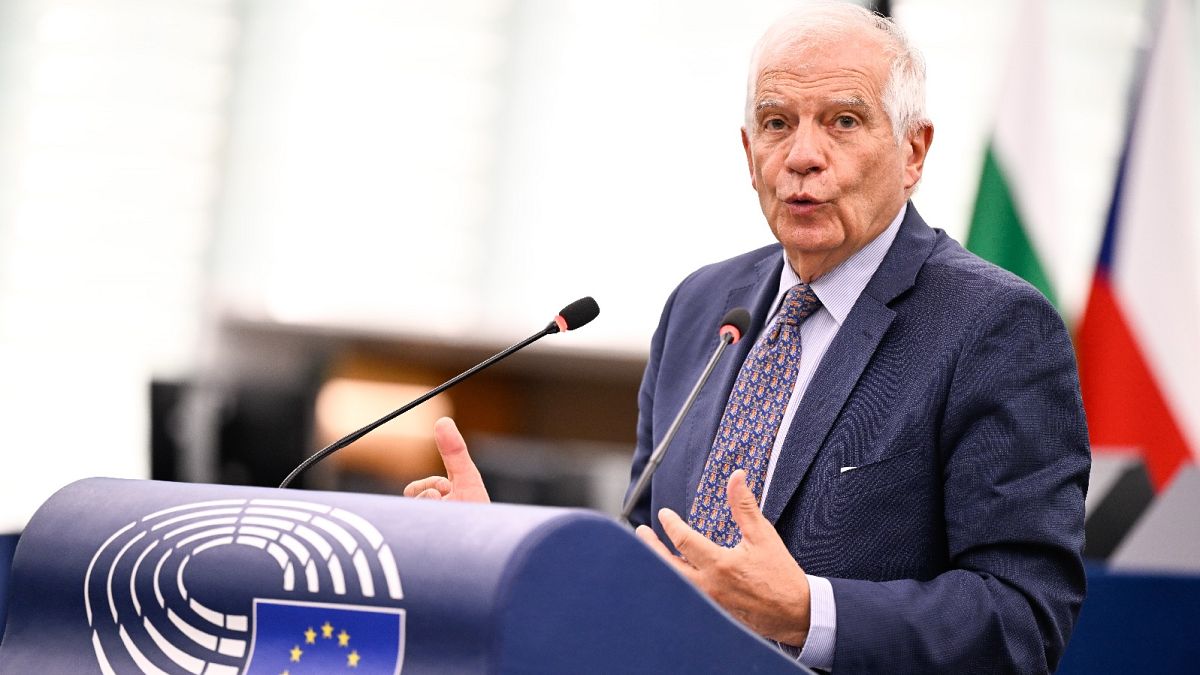The European Union’s chief diplomat, Josep Borrell, has emphasized the importance of strengthening Lebanon’s political institutions to resolve the ongoing conflict that has resulted in the deaths of thousands of individuals. Borrell highlighted the need for political reform within Lebanese society and urged the EU to take advantage of Hezbollah’s current weakness to bolster Lebanon’s political structures and secure a ceasefire agreement with Israel. The conflict between Hezbollah militants, supported by Iran, and Israel has escalated, leading to significant casualties and displacement. Borrell emphasized the need for four essential actions to achieve long-term stability in Lebanon, including the election of a new president, support for the Lebanese army, a stronger UN presence on the border, and additional material and humanitarian assistance. He also called on the EU to disburse a financial assistance package for Lebanon and supported a proposal for a humanitarian conference.
Borrell expressed skepticism about the effectiveness of Israel’s military intervention in resolving the conflict, warning that it could further destabilize the region and strengthen Hezbollah. He emphasized the importance of addressing conflicts rooted in the structural issues of the Middle East through political solutions rather than military actions. Borrell stressed the need for the Lebanese political class to take responsibility for the situation and called on regional actors to respect international and humanitarian law. He criticized Israel for targeting civilian infrastructure and settler violence in the occupied West Bank, proposing sanctions against two Israeli ministers. Borrell’s term as the EU’s High Representative for Foreign Affairs is coming to an end, with Estonia’s Kaja Kallas set to replace him in December.
The conflict between Hezbollah militants, backed by Iran, and Israel has escalated, resulting in significant casualties and displacement in Lebanon. Borrell emphasized the need for political reform within Lebanese society to address the root causes of the conflict. He urged the EU to seize the opportunity presented by Hezbollah’s weakness to strengthen Lebanon’s political institutions and facilitate a ceasefire with Israel. Borrell outlined four essential actions for achieving long-term stability in Lebanon, including the election of a new president, support for the Lebanese army, a stronger UN presence on the border, and additional material and humanitarian assistance. He also called for the disbursement of a financial assistance package for Lebanon and backed a proposal for a humanitarian conference.
Borrell expressed doubts about the effectiveness of military interventions in resolving conflicts deeply rooted in the structures of the Middle East. He warned that Israel’s military invasion could exacerbate the situation and strengthen Hezbollah further. Borrell stressed the importance of political solutions and the responsibility of the Lebanese political class in addressing the conflict. He called on regional actors to uphold international and humanitarian law and criticized Israel for its actions in Lebanon and the occupied West Bank. Borrell proposed sanctions against two Israeli ministers in response to their actions. With his term ending soon, Borrell highlighted the need for continued efforts to support Lebanon and achieve lasting peace in the region.
As Lebanon continues to face a deadly conflict between Hezbollah militants and Israel, the EU’s chief diplomat, Josep Borrell, has emphasized the importance of strengthening Lebanon’s political institutions to find a lasting solution. Borrell called for political reform within Lebanese society and urged the EU to capitalize on Hezbollah’s current weakness to bolster Lebanon’s political structures and secure a ceasefire deal with Israel. The escalating conflict has resulted in significant casualties and displacement, underscoring the urgency of addressing the root causes of the crisis. Borrell outlined four key actions for achieving long-term stability in Lebanon, including electing a new president, supporting the Lebanese army, increasing UN presence on the border, and providing additional material and humanitarian assistance.
Borrell cautioned against relying solely on military interventions to resolve conflicts deeply ingrained in the Middle East’s structures. He warned that Israel’s military invasion could further destabilize the region and strengthen Hezbollah, stressing the importance of political solutions and the responsibility of the Lebanese political class. Borrell called on regional actors to respect international and humanitarian law and criticized Israel for its actions in Lebanon and the occupied West Bank. He proposed sanctions against two Israeli ministers as part of efforts to hold accountable those responsible for violations. With his term ending soon, Borrell urged continued support for Lebanon and stressed the need for concerted efforts to achieve lasting peace in the region.





















